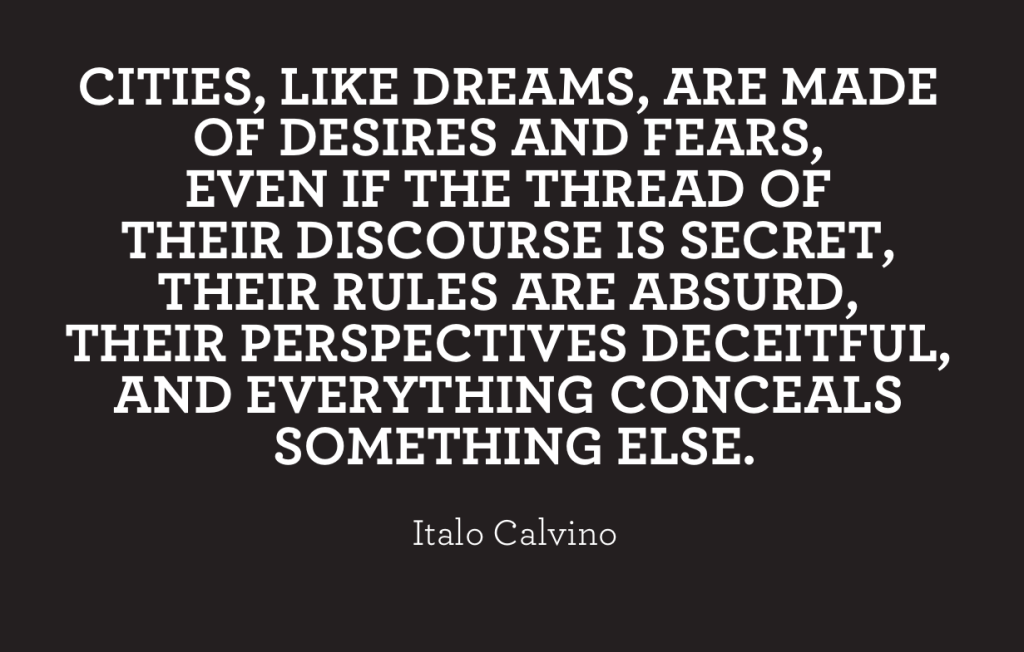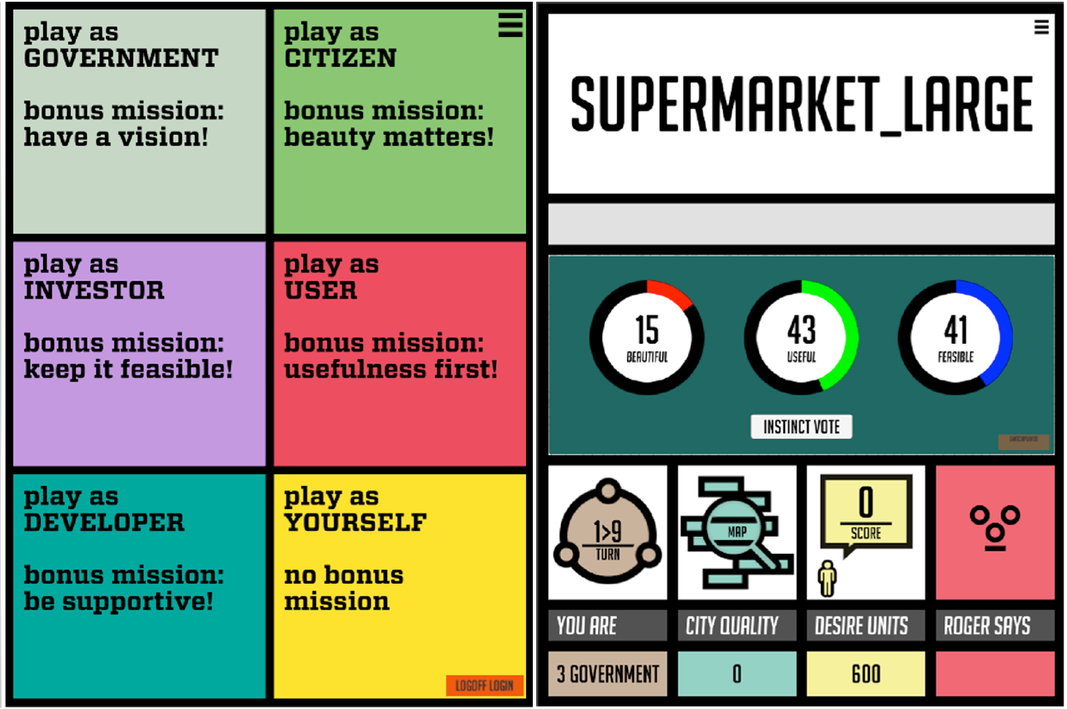Games for Cities
Redesire (2016)
Den Bosch [NL]
Developed by:
App-based game that creates a platform for multiple urban development stakeholders to engage with one another’s spatial desires

Redesire is a serious game developed by Rezone and We Are Muesli in partnership with Heijmans (international construction company). It is an interactive multiplayer game that challenges players to engage with each other during the (re)development of an area. The game is a response to changes in the world of real estate and construction in the Netherlands, where participation and co-creation with various stakeholders are increasingly intertwined in (re)development projects. The game designers believe that gaming can play a valuable role in generating new tools for the public to participate in urban development processes, and Redesire tries to do just this. Playing with the different interests at stake at different levels of an urban development process, it creates a ‘map of interests’ for specific areas and developments in the city.
With a focus now on the transformation of inner-city urban locations, urban developments can become hotly contested if they ignore the multiple diverse interests involved in (re)developing these dense spaces. Transformation is a complex issue when spaces are divided by multiple public and private property owners, and the capital needed for investment is huge. Games can be of good use here, since they create space for experimenting with other possible behaviours and solutions. Games also provide a safe space for stakeholders with seemingly opposing interests to meet and work on a solution that overcomes their differences. In today’s world of urban planning, there are a range of new players involved, such as new professionals, non-professionals and local residents. This stakeholder complexity calls for new tools that bring these voices together in constructive ways, to create developments that are inclusive. Could Redesire become the new blueprint for efficient and long term urban planning and decision making?

